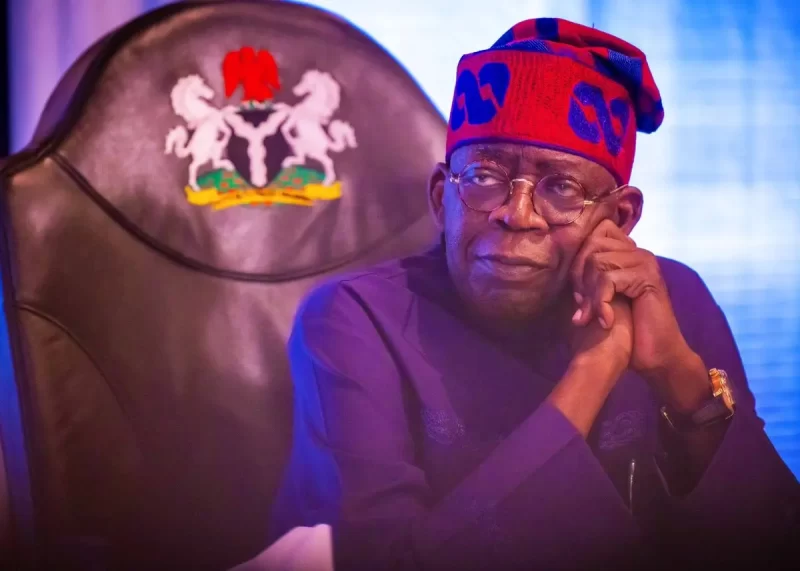Africa
Leadership Is About Saying No: Tinubu’s Decisive Style And The Hajj Fare Review -By Adamu Yalwa Gabi
In the end, leadership is not about pleasing everyone; it is about serving everyone justly. In that sense, both Tony Blair’s maxim and Tinubu’s practice align perfectly, proof that real leadership is not in the number of approvals signed, but in the wisdom to say no when necessary for the greater good.

”The art of leadership is saying no, not saying yes. It is very easy to say yes.” — Tony Blair
Those words by the British politician and former Prime Minister, Tony Blair, who served the United Kingdom between 1997 and 2007, capture a timeless truth about leadership and one that resonates deeply with the leadership philosophy of President Bola Ahmed Tinubu.
Recently, I found myself in a heated conversation with an anti-Tinubu loyalist over the Federal Government’s decision to approve a 50 percent discount for Christian pilgrims traveling to Jerusalem. The critic mocked what he termed as “selective generosity,” trying to paint it as an unjust decision. At that moment, I struggled to find words to defend the President, though I knew his actions often have deeper reasoning and balance. Then, as fate would have it, the President once again demonstrated leadership rooted in fairness, empathy, and prudence by ordering the downward review of the 2026 Hajj fares.
President Tinubu’s directive to the National Hajj Commission of Nigeria (NAHCON) came after being briefed that the 2026 Hajj fare had been pegged at ₦8,118,333.67 per pilgrim for the Borno-Adamawa zone, ₦8,244,813.67 for the Northern zone, and ₦8,561,013.67 for the Southern zone, even after an earlier ₦200,000 discount — a measure that was widely credited to the proactive leadership of NAHCON Chairman, Prof. Abdullahi Saleh Usman. Yet, rather than celebrate prematurely, Mr. President said no.
He ordered that the fare be reduced further within 48 hours, citing the recent appreciation of the naira against the dollar as a factor that must reflect in the cost. To him, governance is about fairness and sensitivity, not excuses. The result is a revised, more affordable fare that will enable a larger number of intending pilgrims to fulfill their religious obligations in 2026.
In making a little comparative reflection, though I have not had the privilege of performing both spiritual journeys, it is important to note that Muslim pilgrims spend a longer period on pilgrimage than their Christian counterparts. Yet, President Tinubu has shown equal regard for both faiths, balancing sensitivity with fairness. This is the hallmark of true leadership — to uplift all, not favor one over the other.
Interestingly, when Hajj fares rose dramatically under former President Muhammadu Buhari following the removal of subsidies, there was little or no public outcry, particularly from Northern Muslims who bore the brunt of the change. The same voices that were silent then have now found volume under Tinubu’s administration, labeling every adjustment as insensitivity. Such selective criticism exposes not patriotism but political bias.
Tinubu’s approach, however, remains consistent. He has chosen the harder path of saying no where necessary, not to punish, but to protect. Saying no to complacency, to waste, and to policies that do not coincide with the country’s economic realities. That is the art of leadership Tony Blair described — the ability to resist easy applause in favor of lasting impact.
The President’s fairness in governance mirrors the integrity of those he has chosen to work with, men like Prof. Abdullahi Saleh Usman, the NAHCON Chairman, whose leadership has come under unfair attack. Recent allegations of corruption against him by an anti-graft agency appear to be the handiwork of detractors who wish to distract or discredit him and, by extension, the Tinubu administration.
Those familiar with Prof. Usman’s track record know him as a man of integrity and scholarship, driven by service rather than self-interest. It is therefore only fair that he be exonerated from such baseless accusations designed to derail the reform momentum at NAHCON. The agency’s recent progress, from digital reforms to transparent pilgrim registration and better logistics, reflects capable stewardship, not corruption.
Saying no requires courage. It is easier for a leader to seek approval by saying yes to every demand, every policy, and every populist temptation. But great nations are built by those who know when restraint is the greater act of compassion. Tinubu’s decision on both Christian pilgrimage support and Hajj fare reduction reflects that courage — the courage to balance faith with fairness, empathy with economic sense.
In the end, leadership is not about pleasing everyone; it is about serving everyone justly. In that sense, both Tony Blair’s maxim and Tinubu’s practice align perfectly, proof that real leadership is not in the number of approvals signed, but in the wisdom to say no when necessary for the greater good.
Gabi, a journalist, writes from Bauchi and can be reached via adamumgabi@gmail.com or +2348033990884.
























